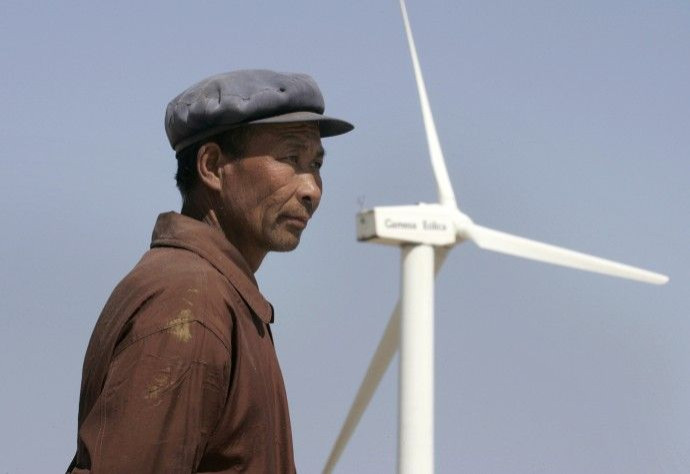U.S.-China trade tensions spill onto wind power

The United States is accusing China of illegally subsidizing the production of wind power equipment.
On Wednesday, it announced that it has requested consultations with China, thereby initiating the first step in the World Trade Organization (WTO) dispute process.
Specifically, the U.S. said Chinese government subsidies for wind power equipment manufacturing is contingent on the usage of parts and components made in China rather than those made abroad, which is illegal under WTO rules.
These subsidies effectively operate as a barrier to U.S. exports to China, said U.S. trade representatives Ron Kirk.
Trade tensions between the U.S and China is arguably the most acrimonious in the world.
Since 2002, the U.S. has requested eight consultations with China (before the current dispute), the most of any WTO member. Moreover, the U.S. has conducted 71 anti-dumping investigations against China, by far its most frequent target, according to the Peterson Institute.
Recently, tensions have escalated on the macroeconomic front as U.S. politicians stepped up rhetoric against China's undervalued currency. Whether directly or indirect, they blame China for taking away U.S. jobs and thus weakening the U.S. economy.
Indeed, jobs is a key part of the wind power dispute. The U.S. decision to request consultation with China underscores [its] commitment to ensuring a level playing field with China for American workers and businesses, said Kirk.
China is a growing player in the renewable energy market due to generous support from the government. Last year, it overtook the U.S. as the biggest spender on renewable energy, according to the Pew Charitable Trusts.
Currently, estimates put the country's spending at $12 million per minute on some aspect of renewable energy, according to Ed Lay of Emeritus International Group, an investment advisory firm that's involved in the solar energy and battery technology market.
Lay said solar energy is currently leading the way in China.
The Peterson Institute said U.S.-China trade tensions may be just a consequence of the rising trade volumes between the two countries. So as China becomes a big player in the renewable energy market, trade tensions may naturally arise.
However, the Peterson Institute also warned that if the two countries can't behave reasonably in their numerous trade spats, the U.S. may end up slapping tariffs on Chinese goods while China builds a trade bloc with exclusionary walls in Asia and take measures to undermine the role of the dollar as the world’s reserve currency.
Email Hao Li at hao.li@ibtimes.com
© Copyright IBTimes 2024. All rights reserved.





















